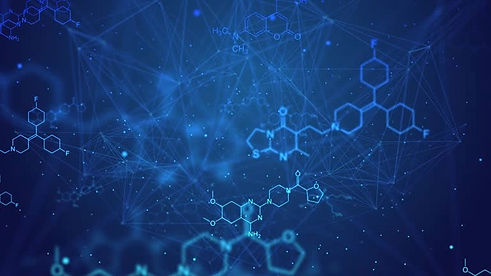CHAI Health, LLC


VIP ~ There Is No Substitute
Female Hormone Replacement Therapy
Restore Your Vitality

HRT Purpose
In female hormone replacement therapy (HRT), estrogen and progesterone are primarily used to manage symptoms related to peri-menopause and menopause, such as hot flashes, vaginal dryness, and mood changes. Testosterone may be added for some women to address low libido, energy levels, bone health, and fat distribution.

Here's a more detailed look at each hormone:
ESTROGEN
Estrogen is crucial for maintaining healthy vaginal tissue, reducing hot flashes, and protecting bones from osteoporosis and some protection from cardiovascular disease. It can also help with sleep and mood.
Relieving Menopause Symptoms:
Estrogen helps reduce the severity and frequency of hot flashes, which are a common symptom of menopause. It can also alleviate vaginal dryness, which can be uncomfortable and lead to issues with intimacy.
Protecting Bone Health:
Estrogen plays a crucial role in maintaining bone density. During menopause, a decrease in estrogen can lead to bone loss, increasing the risk of osteoporosis and fractures. Estrogen therapy can help prevent or slow down this bone loss.
Cardiovascular Health:
Studies suggest that estrogen may have a protective effect on the cardiovascular system.
Anti-Aging Benefits:
Estrogen may also improve skin elasticity and hydration, reduce skin wrinkles, and enhance collagen content and vascularization.


Here's a more detailed look at each hormone:
PROGESTERONE
Progesterone can help reduce the frequency and intensity of hot flashes and night sweats, common menopausal symptoms. It may also contribute to better sleep quality, potentially by calming the nervous system and reducing night sweats.
Cognition & Memory:
Research suggests progesterone may protect against cognitive decline and improve memory.
Mood and Anxiety:
Progesterone can influence mood and cognitive function, potentially reducing anxiety and improving overall well-being. It may also help with mood swings and irritability associated with menopause.


TESTOSTERONE
Testosterone has significant effects on various physiological functions that influence libido, fatigue and muscle mass.
Libido and Sexual Function:
Testosterone is a key driver of sexual desire and function.
Muscle Mass and Strength:
Testosterone plays a key role in muscle development and strength.
Bone Health:
Testosterone is essential for bone density and can help protect against bone loss.
Red Blood Cell Production:
Testosterone influences red blood cell production.
Fat Distribution:
Testosterone influences fat distribution and can help maintain a youthful and fit physique.



How Estrogen Protects the Heart
Improved Lipid Profiles:
Estrogen helps lower LDL ("bad") cholesterol and raise HDL ("good") cholesterol, contributing to a healthier cardiovascular system.
Vascular Function:
Estrogen promotes vascular elasticity, relaxes blood vessels, and enhances endothelial function, which are crucial for proper blood flow and heart health.
Anti-Inflammatory Effects:
Estrogen has anti-inflammatory properties, which can help prevent the buildup of plaque in arteries and reduce the risk of atherosclerosis.
Reduced Oxidative Stress:
Estrogen helps combat free radicals, which can damage blood vessels and contribute to heart disease.
Estrogen & Cardiovascular Disease
in Different Stages
Before peri-menopause & menopause:
Estrogen levels are high, providing significant protection against heart disease. The incidence of cardiovascular disease is lower in premenopausal women compared to men of the same age.
Peri-menopause and Menopause:
As estrogen levels decline during peri-menopause and after menopause, the protective effects diminish. Women's risk of developing heart disease increases, approaching that of men.
Hormone Replacement Therapy:
HRT involves taking estrogen, and sometimes progesterone, to replace the hormones lost during peri-menopause and menopause. Research suggests that early HRT (within 10 years of menopause) may have cardiovascular benefits.


Potential risks & benefits of HRT
Benefits:
HRT can significantly improve quality of life during peri-menopause & menopause and may offer long-term health benefits.
Risks:
HRT can increase the risk of certain conditions, such as hormone receptor-positive (HR+) breast cancer, blood clots and stroke, particularly in those who smoke cigarettes.
Individualized Approach:
Decisions about HRT should be made on a case-by-case basis, considering a woman's individual risk factors, overall health, and potential benefits and risks of treatment.
Combined HRT:
For women with a uterus, estrogen is typically combined with progesterone to protect the uterine lining.
Routes of administration:
HRT can be administered via pills, patches, gels and creams.

CHAI Health, LLC
VIP ~ There Is No Substitute


Male Hormone Replacement Therapy (TRT)
Restore Your Vitality
PURPOSE
Male Hormone Replacement Therapy (TRT) offers significant benefits in terms of sexual function, energy, mood, muscle mass, reduced body fat and enhanced cognition. TRT involves supplementing or replacing androgens, primarily testosterone, in men whose bodies do not produce enough of the hormone. TRT is used to treat male hypogonadism (low testosterone), which can lead to various symptoms like decreased libido, fatigue, and loss of muscle mass.
BENEFITS OF TRT
Improved sexual function:
TRT can restore libido, improve erectile function, and enhance overall sexual health.
Increased energy and mood:
TRT can help alleviate fatigue, increase energy levels, and improve mood.
Muscle and bone mass gain:
TRT can help rebuild muscle mass and improve bone density, particularly in men with hypogonadism.
Other benefits:
TRT may also improve body composition, reduce body fat, and enhance cognition.


TYPES OF TRT
Gels or Creams:
Testosterone gels or creams are applied daily to the skin, often on the shoulders, arms, or abdomen.
Injections:
Testosterone is injected into the muscle.
Patches:
Testosterone patches are applied daily to the skin and release testosterone into the bloodstream.

TRT CONSIDERATIONS & RISKS
Potential Side effects:
Potential side effects of TRT include acne, breast swelling, and increased red blood cell count.
Monitoring:
Regular monitoring of testosterone levels and side effects is crucial during TRT.
Off-label use:
While TRT is approved for men with specific hypogonadism diagnoses, it is also used off-label for age-related low testosterone.
Not for all men:
TRT is not appropriate for all men, especially those with prostate cancer or those with benign prostate hypertrophy.






